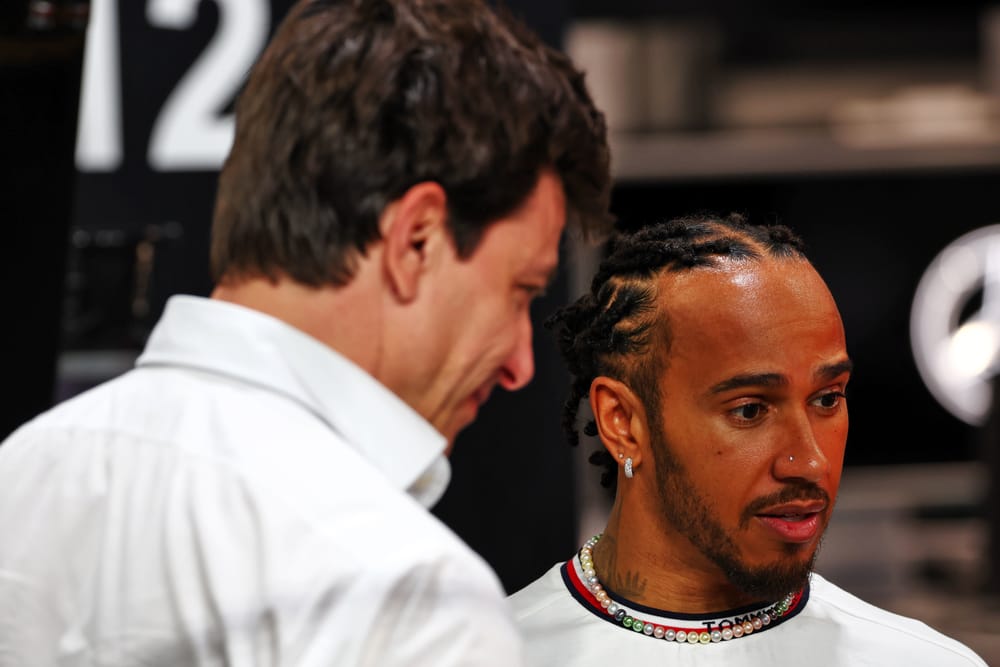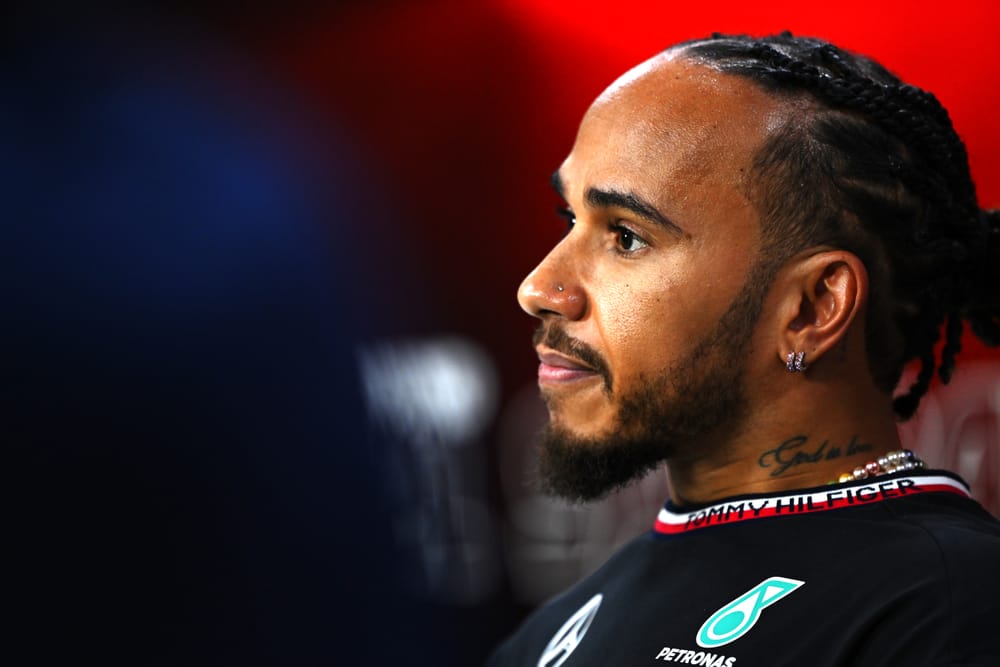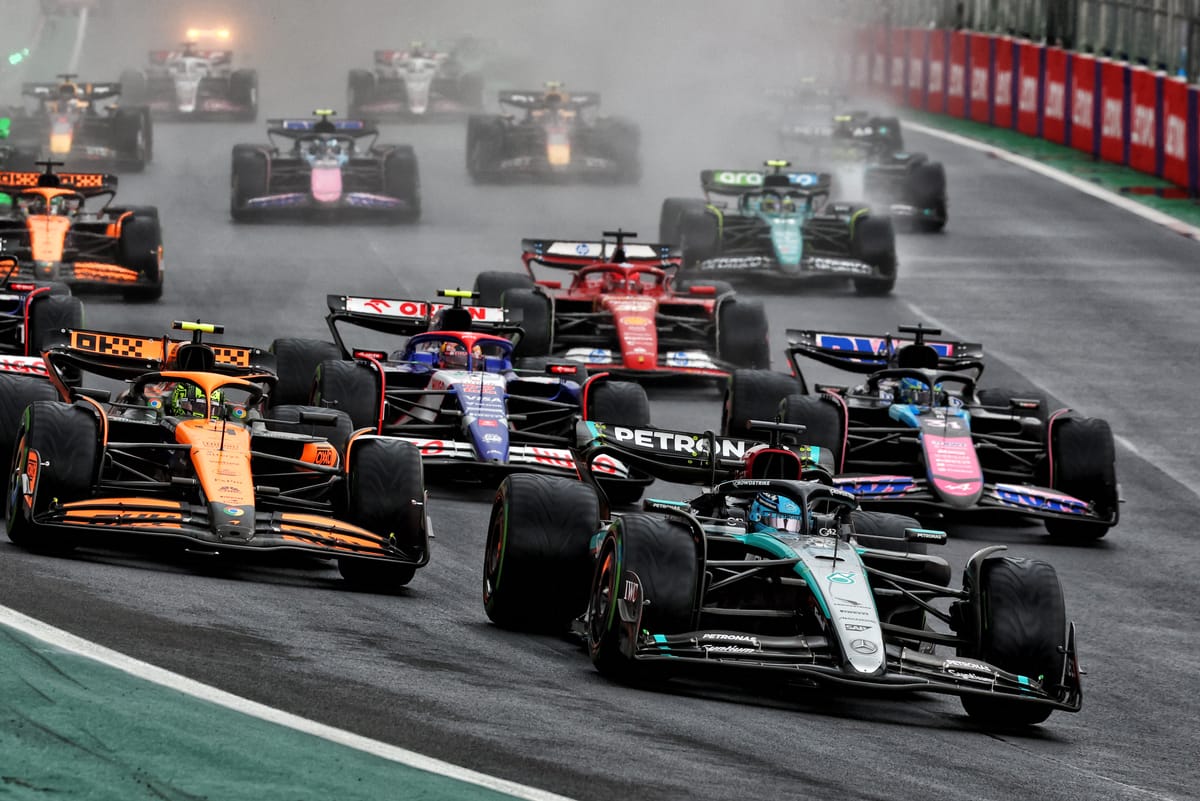Up Next

People are complicated, even in an elite sport like Formula 1 where all of their actions can be helpfully translated and analysed through the prism of the ultimate goal - the win, the title, the era of dominance.
And it is that complexity which probably helps explain why, ever since the news and still to this day, the messaging from Formula 1 boss Toto Wolff about the impending departure of the team's most important driver ever Lewis Hamilton to Ferrari has been mixed and has come off almost self-contradictory at times.
The newest example of this has come in the book Inside Mercedes F1: Life in the Fast Lane, written by Matt Whyman after he'd been granted behind-the-scenes access into the team's day-to-day operation across 2023 and the start of 2024.
That latter period covered the bombshell Hamilton decision, and Wolff finding out about that decision, first through the grapevine and then from the man himself.
A Wolff answer from that book - though it will be an older quote rather than one necessarily fully reflective of Wolff's current mindset - has elicited a relatively strong reaction, not just from the Hamilton fanbase but from many of those of a less partisan persuasion.
"There’s a reason why we only signed a one-plus-one-year contract," Wolff says in the book.
"We’re in a sport where cognitive sharpness is extremely important, and I believe everyone has a shelf life. So I need to look at the next generation.
"It’s the same in football. Managers like Sir Alex Ferguson or Pep Guardiola. They anticipated it in the performance of their top stars and brought in junior players who drove the team for the next years.
"I absolutely had it on my radar that Lewis would go. I just couldn’t understand why he’d change to another team before we knew if we were going to be competitive.
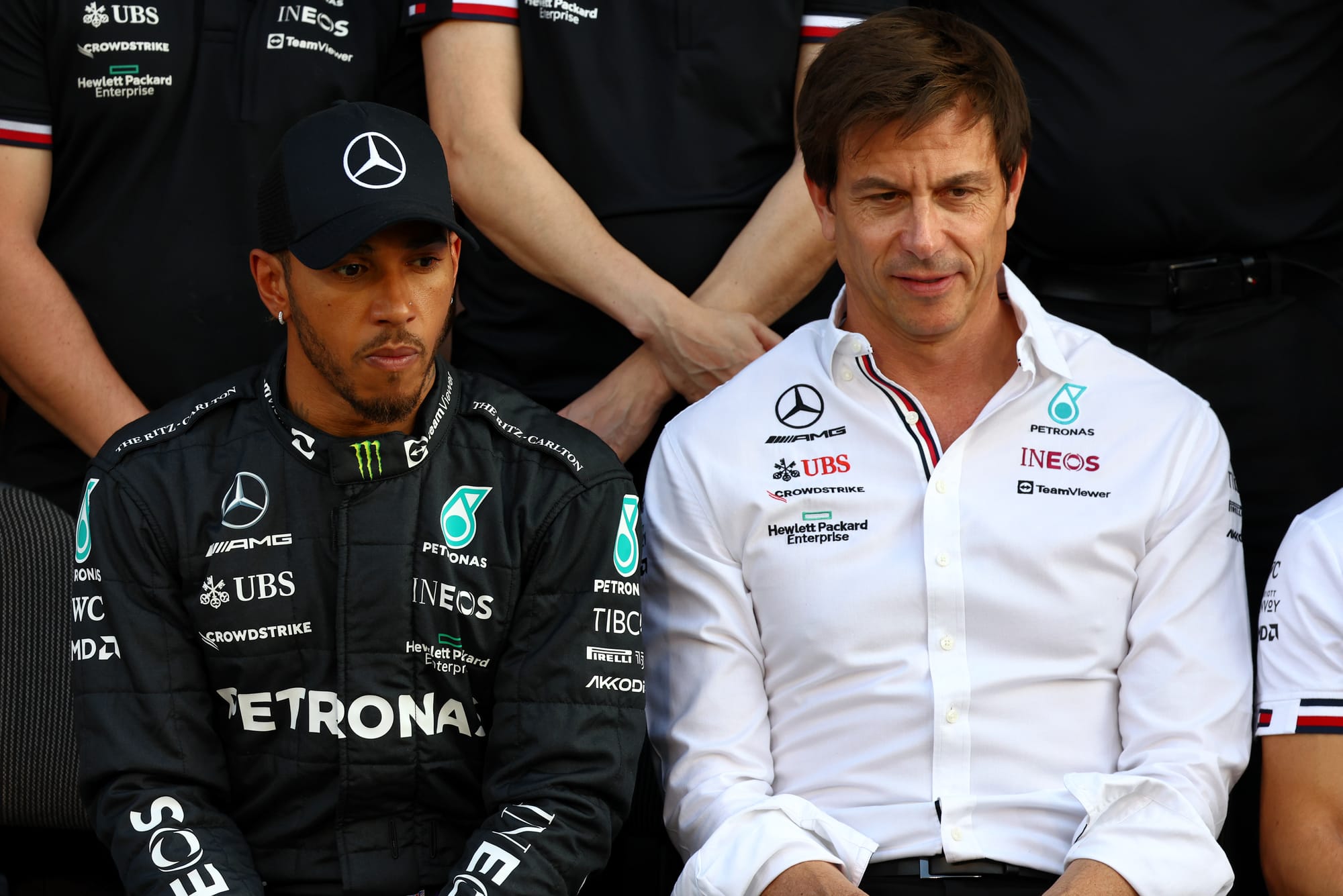
"It also didn’t give me any time to react. I had to emergency call our partners, and I possibly missed out on negotiating with other drivers who had signed contracts a few weeks earlier like Charles Leclerc and Lando Norris.
“It put us on the backfoot, and that had a commercial impact. But do I take that personally? This was a business decision.
"This didn't even move the needle for me."
It is unsurprising that people have latched on to the "no time to react" part of the comments - Wolff will know very well what that part conveys, even if it is offset by the no-hard-feelings tone of the rest of his answer.
And it is fair to say there is a dissonance here, no? A dissonance that Mercedes will potentially find itself grappling with over the next few weeks as it bids farewell - likely with a bit of pomp and public wistfulness in Abu Dhabi - to its most successful driver.
Wolff says elsewhere that he was "in disbelief" but also that Hamilton's decision "helps us avoid the moment where we need to tell the sport's most iconic driver that we want to stop".
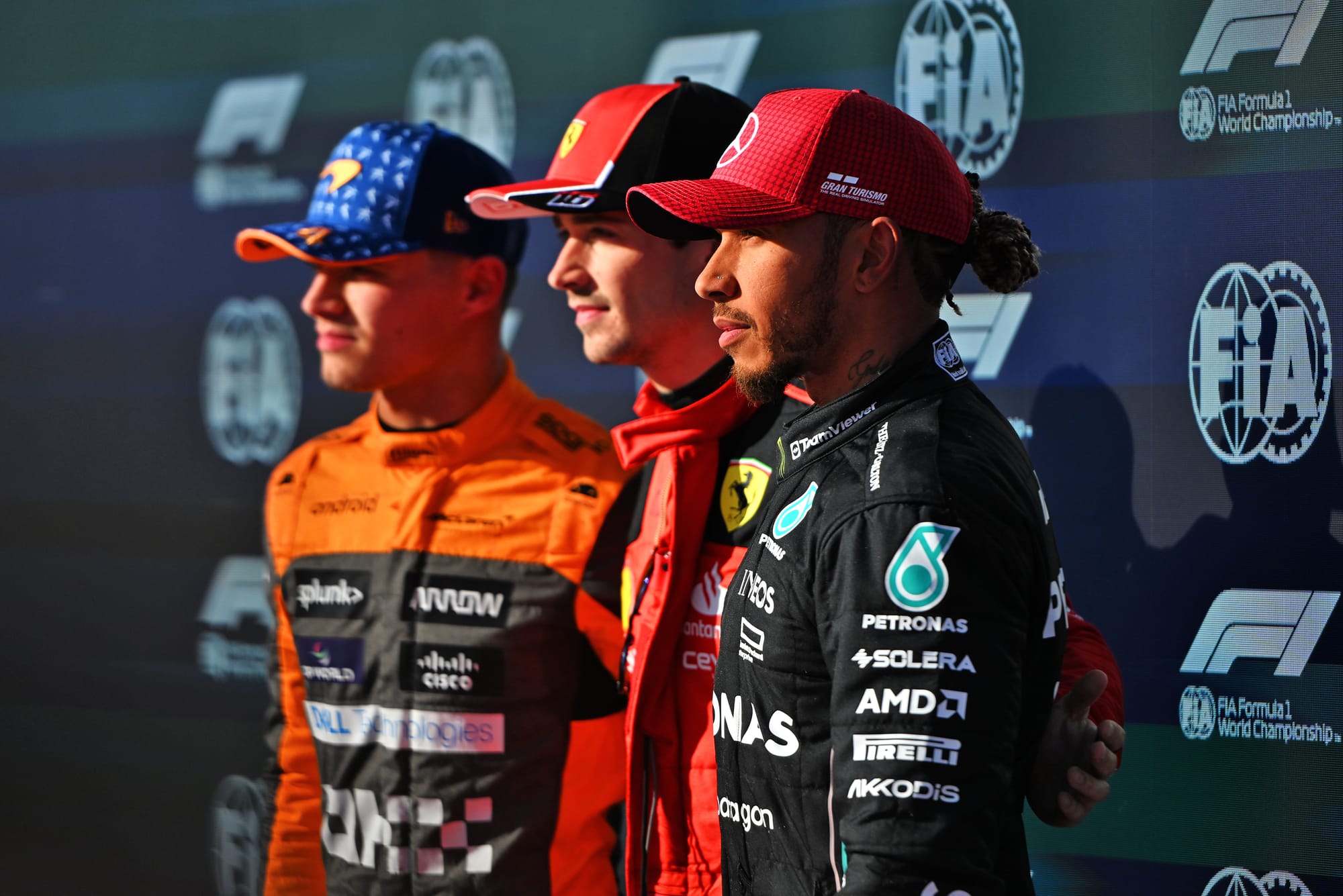
None of this is unfair, none of this is incorrect, but it frames the whole situation as something that has been done to the Wolff-led Mercedes team. Something that Mercedes has had to react to. Something, apparently, that even led to it "potentially" missing out on fruitful talks with long-term options like Charles Leclerc and Lando Norris.
That framing has persisted through the year, but it is not reflective of reality. The "shelf life" comment is the reality. Hamilton triggered the exit clause and headed for another team, but Mercedes had toppled the first domino.
Wolff has consistently insisted that his long-time friendship with Hamilton will not be affected or changed by this, though again the framing has been such that "this" has reliably referred to Hamilton's January surprise rather than the inciting incident that came before.
Which was Mercedes refusing to offer Hamilton a contract of a conventional F1 length because it feared he might not be good enough to hold down the seat over certain alternatives by the end of it.
And let's be clear - this was and remains, in the cold light of day, an extremely pragmatic decision that everybody, including Hamilton, understands. Last time out at Interlagos, where Hamilton struggled so badly in the sort of conditions he used to absolutely dominate, it didn't look like the wrong decision. Over a fruitless 2024 as a whole, it hasn't really looked like the wrong decision.
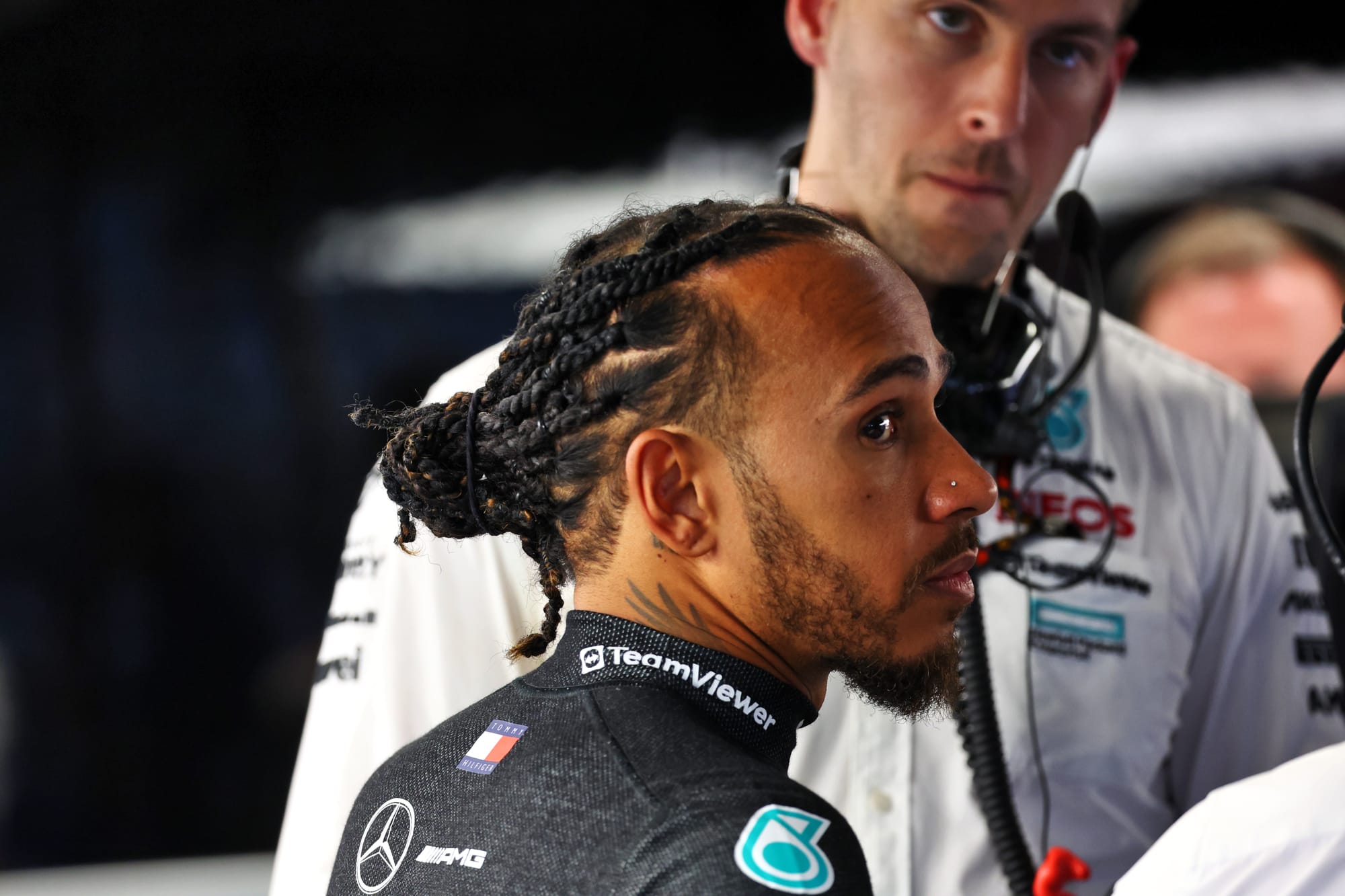
But it can't be waved away as just business. It is not just business to exercise a break clause in a contract with a team you've spent a decade with - in the same way, that it is not just business to hedge your bets against your driver hitting competitive decline.
On paper, it's all purely transactional, but in reality, Hamilton has spent half of his time on Earth as an F1 driver and is not ready to let that go, while his long-time employer has made it clear to him it does not think he can do it at an elite level for much longer, or at least is not willing to commit to paying him elite-level compensation for that period.
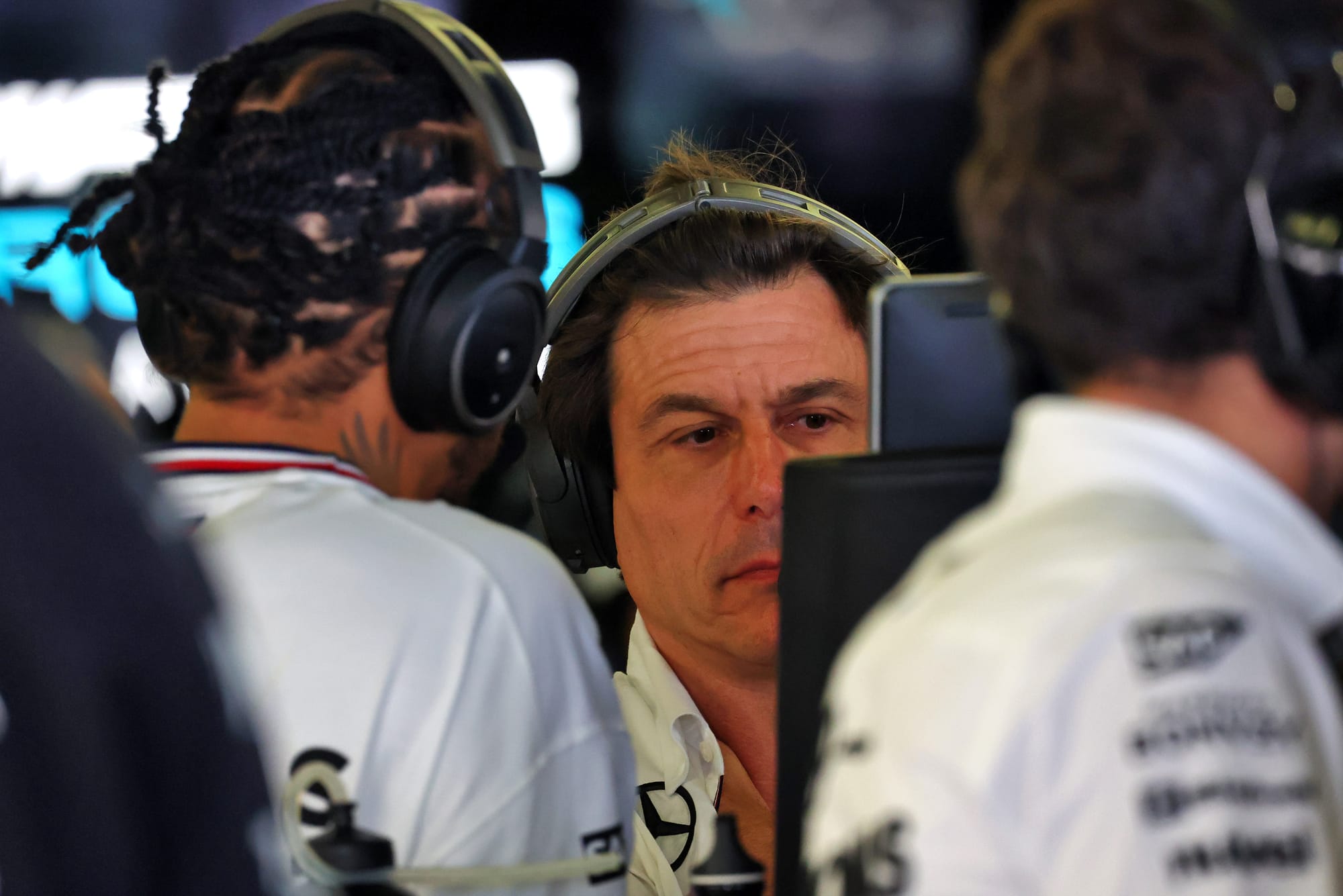
Mercedes and Wolff are now, by necessity, the antagonists in the remainder of Lewis Hamilton's F1 story. Not the bad guys, not the villains, but an entity positioned in almost a zero-sum game against its most iconic driver.
Mercedes and Wolff have not treated Hamilton badly. They have simply either made a winning or a losing bet, the outcome of which is based on whether Kimi Antonelli hits the ground running but more so on whether Ferrari gets the Interlagos Hamilton or, say, the Spa-Francorchamps Hamilton.
After all, Antonelli and those around him would've been, by all accounts, perfectly amenable to a more gradual introduction to the Mercedes F1 car.
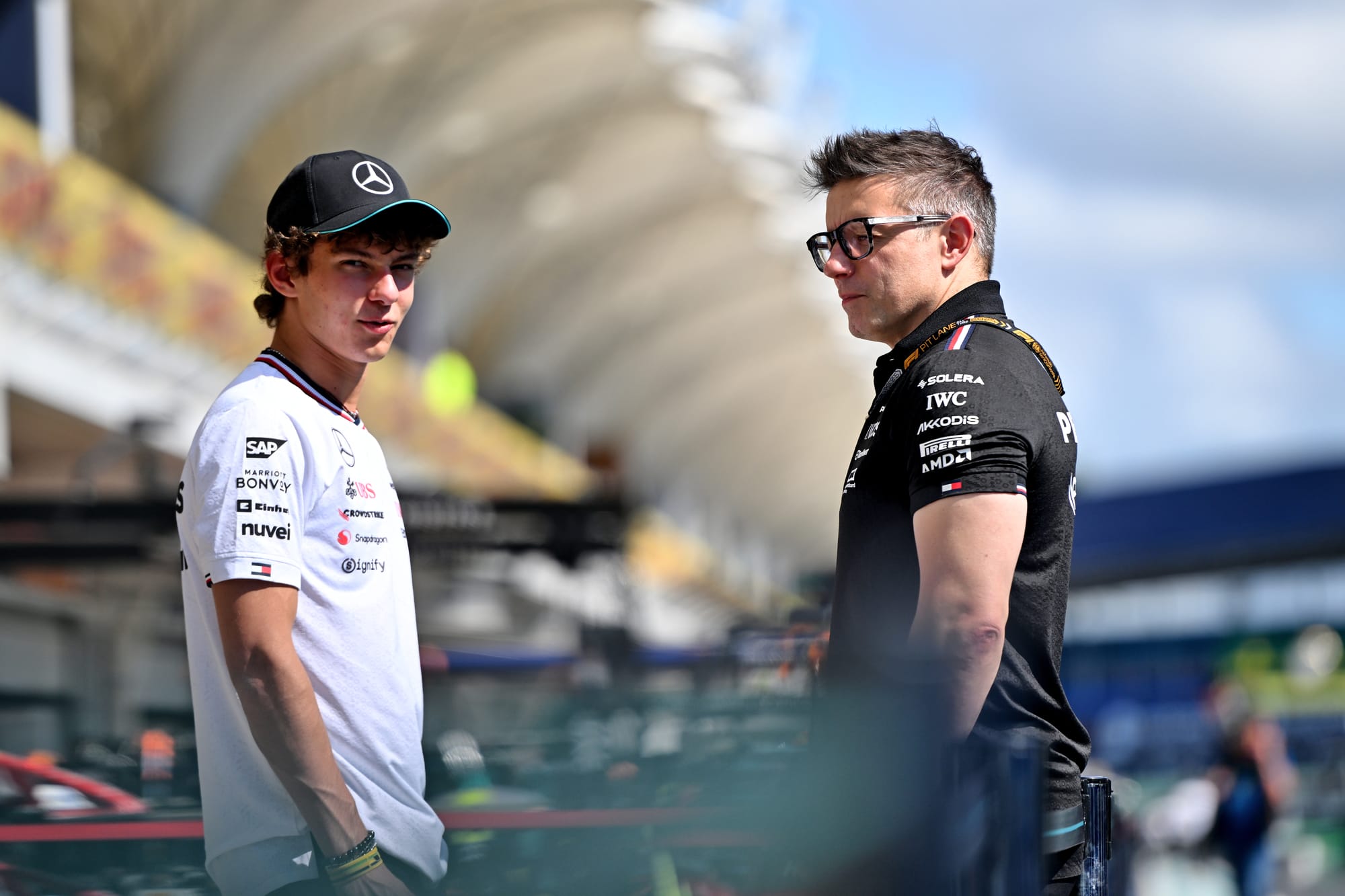
If he is an instant success, he would've been a success three years down the line, too - without the cost of letting Mercedes' most valuable asset, image- and popularity-wise, in Hamilton go to a direct rival. But that's a price that's definitively worth paying if Hamilton has declined irreversibly, or will do so during his Ferrari tenure.
"Shelf life" is the bluntest way yet of outlining that logic. There is something uniquely brutal about that phrase that you may either hate or admire.
What it definitely is, though, is incompatible with a clean break or a storybook ending to this iconic F1 partnership. It is more of a hindrance to any such ending than the capricious W14 or Hamilton's patchy form.
Kind words will be said, and they will be meant, and tears may be shed, and they will be genuine if so, but someone has won here and someone has lost. Who's who - we will find out soon enough in 2025. And "shelf life" will either go down as the perfect encapsulation of inspired managerial ruthlessness - or of short-sighted overconfidence in truisms.

